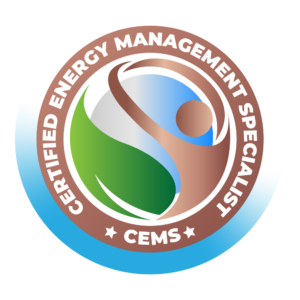About Course
HVAC System Specialist – Training Program
HVAC System Specialist – Training Program Training Course provides intensive, practical training ideal for recent technical or engineering school graduates, engineers new to the HVAC field, those who need a refresher in new technologies, and facility managers, sales representatives, and others who want to gain a better understanding of HVAC fundamentals, equipment, and systems.
The training covers the technical aspects of design and allows participants an opportunity to expand their exposure to HVAC system applications to increase energy savings and improve indoor environmental quality.
The HVAC System Specialist – Training Programe was prepared by a Sustainability Specialist – Krishnaji Pawar
specialises in developing sustainable design strategies for Green Building Certification Systems (LEED, GSAS, etc.), Energy Management, Energy Efficiency, Energy Audits, Building Commissioning,Environmental Impact Assessments, and Environmental Management Systems.
One of the areas of mechanical engineering that is in particularly high demand in the modern world is known as heating, ventilation, and air conditioning engineering (HVAC engineering). By enrolling in this course, you will learn the fundamentals of HVAC that each and every professional working in the field should be familiar with, as well as the core principles of HVAC engineering, directly from working professionals in the field.
You will be equipped with sufficient knowledge that will allow you to understand the discipline in depth and have a complete perspective on the discipline, regardless of whether you are currently working in the field or are considering a career in the field. This knowledge will allow you to understand the discipline in depth and have a complete understanding of it.
You will also acquire the sound knowledge that is typically gained from professionals who have been working in the field for a number of years.
It is common for the transition from academics to actual field work to feel frustrating because, even though you have the knowledge, for some reason it does not match the practise.
The following are some insights into the course content:
- Learn HVAC and Refrigeration Systems
- Vapor compression refrigeration cycle
- Factors affecting refrigeration and air conditioning system performance
- Vapor absorption refrigeration system
- Understanding the Types and Functions of HVAC Systems
- Learn about the Vapor Compression Cycle, COP, EER, SEER, IPLV, and HVAC Energy Efficiency Measures.
- Understand Psychrometric Chart and Processes
- Sensible and latent heat transfer calculations
- Energy Performance Assessment of HVAC Systems
- Global Environmental Concerns
KEY TAKEAWAYS
- Work through practical examples to demonstrate the topics and procedures covered.
- Examine the various areas of the Body of Knowledge – HVAC Systems from the perspective of the AEE / BEE certification exam.
- Work through practical examples to demonstrate the topics and procedures covered.
- This training programme helps prepare attendees to take the Certified Energy Manager (CEM) exam.
- One of the most globally respected certifications in the field of energy efficiency and energy management Gain industry and peer recognition, bring value to your organization, and propel your career forward.
Students who successfully complete our HVAC Systems Specialist course programme in HVAC technology are well-prepared for careers as HVAC engineers. Students learn the ins and outs of the various technical processes involved in HVACR (heating, ventilation, air conditioning, and refrigeration). Students are given the opportunity to gain hands-on experience working with industry-standard machinery and tools through this programme, which equips them with valuable practical knowledge before they begin their job search.
Career opportunities in HVAC are expanding rapidly. Almost all large buildings, malls, and complexes require a comprehensive HVAC system. A career in HVAC has numerous advantages. You should strongly consider a career in HVAC if you enjoy working in new environments, on the field, resolving critical problems, and experiencing rapid growth and development.
Course Content
Section 1: Introduction and Course Outline
-
11:03
-
L1. Introduction and Course Outline Handout
Section 2: HVAC and Refrigeration System
Section 3: Types and Functions of HVAC Systems
Section 4: Vapour Compression Cycle, COP, EER, SEER, IPLV
Section :5 HVAC Systems Improvement Options
Section 6: Psychrometric Chart and Processes
Section 7: Energy Performance Assessment of HVAC Systems
Section 8: Global Environmental Concerns
Section 9: Summary and Resources
Student Ratings & Reviews


